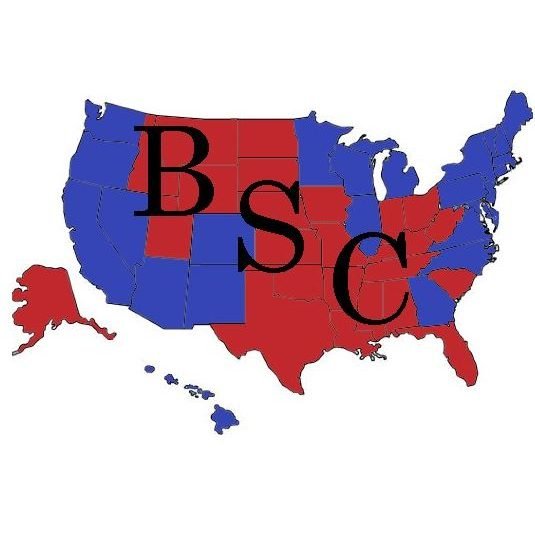MLK And Podhoretz: Two Classic Essays Still Relevant Today
It can be very instructive to re-read what were dynamically controversial essays from an earlier time just to measure where we were then with where we are now.
In the last couple of days I’ve re-read essays by civil rights icon Martin Luther King, Jr., and Norman Podhoretz, the longtime editor of Commentary magazine. Written at almost exactly the same time, the essays give a trenchant insight into the racial issues of the time, which was early 1963.
King, in April 1963, wrote what was technically a letter rather than an essay, though its length and lucid analysis certainly ranks it among the most influential essays in the American corpus.
Generally known as “Letter From Birmingham Jail,” King seeks to justify his presence in Birmingham, AL, leading very public, non-violent protests along with the intentional violations of local segregation laws in the name of a higher moral law.
It is written in response to eight white southern religious leaders who criticize King as an outside agitator whose presence was “unwise and untimely.” Normally, King writes, he would not respond to criticism because of the amount of time such responses would require. But because these eight seemed sincere in their criticism, he decided to meet their criticism head-on.
Plus, he was sitting in jail so he certainly had the time. And thus, he began his 6,946-word essay written in long hand.
Being a minister, from a long line of ministers including his father, his grandfather and his great-grandfather, the seminary-trained King’s references and examples are steeped in Biblical images and in the leading theologians of the time, including Reinhold Niebuhr, Martin Buber, and Paul Tillich.
As for being an outsider, he cites the examples of the Israelite prophets of old who left their hometowns to deliver God’s message to other towns in the kingdom, as well as Paul leaving Tarsus to deliver the message of Christ’s saving grace throughout the Greco-Roman world.
His essential justification is, in his own words, that “injustice anywhere is a threat to justice everywhere.” And in Birmingham, injustice toward blacks was uncontrolled, with unsolved bombings of black homes and churches, lynchings, denial of voting rights, and the unjust treatment of blacks in southern courts.
His eight critics counselled him to “wait,” that changes were coming, and that to push his agenda now would be self-defeating. King rejected such counselling. “Wait,” he responded, sounds like “Never” to blacks who have been waiting for generations.
And thus, he coined the other famous phrase from the Letter that has reverberated through the years: “Justice too long delayed is Justice denied.”
His critics have called him an extremist, which King at first denies. Rather, he sees himself as trying to maintain a balanced position between those blacks who are too complacent and simply accept their lot and the abuses heaped upon them, and those blacks who, in their anger and disgust at the ongoing racial discrimination with which they must live are tending ever more toward violent insurrection.
What he has in mind is the separatist movement under Elijah Muhammad of The Nation of Islam, or, more colloquially the Black Muslims. But leaders like Stokely Carmichael with SNCC and Malcolm X with the aforementioned Black Muslims, and the west coast Black Panthers would soon be on the scene as alternatives to King’s efforts at non-violent civil disobedience.
He then seems to have second thoughts about the term “extremist.” Was not Jesus an extremist for Love? The prophet Amos an extremist for Justice? Wasn’t Paul an extremist for the Christian gospel? Were not Martin Luther, John Bunyan, Abraham Lincoln, and Thomas Jefferson all extremists in their own way?
“The question is not whether we will be extremist,” he now claims, “but what kind of extremists will we be.”
He makes note of two great disappointments in his work as a civil rights advocate: the white moderate and the leaders of the white church.
The black community’s “great stumbling block in his stride toward freedom is not the White Citizen’s Counciler or the Ku Klux Klanner,” King writes, “but the white moderate, who is more devoted to ‘order’ than to justice.”
Such moderates, in King’s view, are paternalistic towards blacks, and also believe that another man’s freedom is dependent on their own timetable of when justice becomes a reality.
As for the leaders of the white church, King describes them as “more cautious than courageous and have remained silent behind the anesthetizing security of stained glass windows.”
Instead of joining in the protests against racial injustice, these white church leaders “stand on the sideline and mouth pious irrelevancies and sanctimonious trivialities.”
By contrast, King cites the example of the early Christians, who, when they “entered a town, the people in power became disturbed and immediately sought to convict the Christians for being ‘disturbers of the peace’ and ‘outside agitators.’ But the Christians pressed on, in the conviction that they were ‘a colony of heaven,’ called to obey God rather than man.”
As a result, Christian influence eliminated the evils of infanticide and gladiatorial contests. And, God willing, the injustice toward blacks as well.
King warns that the Church is in danger of losing relevance by being so closely identified with the society around it that members will soon leave the church. Like Nietzsche’s “madman” who claims God is dead and then tells those gathered that it is they who killed him, King is suggesting that it is Christians themselves who are leading the Church to irrelevancy.
Take note of the plunging numbers of members in mainline churches over the decades since the 1960s.
The essay ends on a note of optimism that the goals of bringing dignity and civil rights to blacks in the South and throughout the United States was righteous and destined to be.
The goal for King was equality before the law. Not special treatment, but equal treatment. That integration would bring about, eventually, a color-blind society in which, again in his own words, one will be judged by the content of their character rather than the color of their skin.
Just two months earlier, in Commentary magazine, another essay was published by the editor of the magazine that put quite a different spin on King’s goal of integration. In fact, it put quite the kibosh on it.
Commentary is a Jewish journal of contemporary ideas, political and social, from a Jewish perspective. It’s editor, Norman Podhoretz, is Jewish and grew up on the tough streets of Brooklyn, NY.
In his essay, “My Negro Problem – and Ours” he describes how it was growing up in a neighborhood terrorized by black kids despite the general line that Jews are rich and blacks are persecuted.
That just didn’t jibe with Podhoretz’s experience. He didn’t know any rich Jews and the black kids he has to interact with in school and on the streets and playgrounds were anything but persecuted.
Early in the essay, Podhoretz narrates one harrowing event after another of the humiliations he and his friends had to endure from the local black kids who coerced them into silence.
“A city boy’s world is contained within three or four square blocks,” Podhoretz writes, “and in my world it was the whites, the Italians and Jews, who feared the Negroes, not the other way around.”
He writes of how the “tracking” of students in junior high helped divide them, with the high-IQ track of rapid advance students dominated by Jewish and other white students with only one black girl in the class.
After acknowledging that growing up in an urban landscape means youth experiences of beating up and being beaten up, Podhoretz then admits, “But the Negro-white conflict had—and no doubt still has – a special intensity and was conducted with a ferocity unmatched by intramural white battling.”
As an adult he begins asking himself, why do we hate each other so? He turns to black author James Baldwin for a possible answer.
Like Podhoretz, Baldwin is also a truth-teller seeking to understand the dynamics of race in America. He foresees, as he told those gathered at a conference at New York’s New School of Social Research, “a story which America denies. And it denies it for the very good reason that my story, once told, confronts it with the truth about itself. In fact, my story, once told, will liberate America. The possibility of liberation – the necessity of becoming responsible for one’s own life – is what most people most profoundly fear.”
Podhoretz notes that Baldwin argues blacks view whites as their jailers and are intensely angry because whites refuse to look at them. To refuse to look, according to Baldwin, is an intense sign of disrespect, as not even being worthy of attention, faceless, and therefore not even human.
But that claim does not go unchallenged by Podhoretz. The principle of facelessness,” he writes, “is a two-way street and can operate in both directions with no difficulty at all. Thus, in my neighborhood in Brooklyn, I was as faceless to the Negroes as they were to me.”
For the blacks in his neighborhood, his mere whiteness was enough to mark him as an enemy. “In a war,” he writes, “it is only the uniform that counts and not the person.”
Podhoretz goes on to admit that part of the attraction of blacks for him was that they were truly “bad boys,” something simply not allowed in his intensely Jewish household.
“To hell with the teacher, the truant officer, the cop,” Podhoretz attributes to these black kids, almost admiringly, “to hell with the whole of the adult world that held us [Jews] in its grip and that we never had the courage to rebel against except sporadically and in petty ways.”
He saw in them a Dionysian excess that made him jealous from his perspective of Apollonian order and disciplined success.
Podhoretz holds up as an authority Baldwin’s claim that all blacks hate whites. In response, he argues that whites are held captive by a guilt over past treatment of blacks and by an anger that burns whenever they are charged with overt racism, which is practically every day, especially in these distraught times. For their part, whites are just tired of having to keep dealing with it.
Then Podhoretz’s essay takes a turn as he excoriates the white liberal whose only experience of blacks is as their butler or nanny, and who have an abstract commitment to the cause of black rights. They do so without ever having to confront this commitment in concrete terms. His contempt for the white liberal well matches King’s own disappointment with white liberals mouthing meaningless platitudes.
This leads Podhoretz to adopt a term developed by the poet Kenneth Rexroth, “Crow-Jimism.” This refers to the actions of guilt-laden whites excusing the failures of blacks. It can be seen as an earlier form of Bush’s “soft bigotry of low expectations.”
Podhoretz sees the black-white divide as insurmountable, and thus King’s goal of integration as solving racial issues as doomed to failure. Interestingly, he concludes by saying the only way to eliminate black-white racism is by eliminating the black-white distinction altogether through intermarriage.
He remarks that among liberals the classic line was, “But would you want your sister to marry one?” Podhoretz answers, thinking of his own daughter, clearly not.
But then he rethinks: “No, I wouldn’t like it at all. I would rail and rave and rant and tear my hair. And then I hope I would have the courage to curse myself for raving and ranting, and to give her my blessing. How dare I withhold it at the behest of the child I once was and against the man I now have a duty to be?”
Interestingly, Podhoretz 50 years later shared the story of how James Baldwin was instrumental in the writing of the essay. It seems Podhoretz commissioned Baldwin to write an article on King’s civil rights movement and the rising black nationalist movements which portend violence.
After being unable to contact Baldwin for an extended time, and after he finally did make contact, Baldwin said he wrote the article and his agent sold it to The New Yorker. It later became one of Baldwin’s most popular books, The Fire Next Time.
Despite Podhoretz allowing that The New Yorker pays ten times what Commentary can pay, it simply wasn’t cricket.
They had a dinner together to hash out their differences, and during it Podhoretz let Baldwin have it with the proverbial both barrels. He said he wasn’t going to engage in “Crow-Jimism” and forgive him, and told him part of the reason he wouldn’t do so is because of how badly he suffered at the hands of blacks while growing up.
He was tired of bending over.
After sharing many of the stories of his youthful humiliations, Baldwin just looked at him and said, “You need to write that up.” Hence, “My Negro Problem – and Ours.”
After its printing, Podhoretz relates, “integrationists were beside themselves,” “separationists … were outraged,” and “fellow Jews were horrified.” He managed to upset most everyone.
Over time, though, the public has come around to the view that Podhoretz was a truth-teller doing what truth-tellers do. In that, he was sharing that story Baldwin speaks of that, “once told, will liberate America.”
At least, that was the hope.
Both King’s and Podhoretz’s essays are well worth one’s time in re-reading, both for its insights in where we were in 1963 and as a measure of where we are today.
During his remembrances of the essay 50 years later Podhoretz asks what the status of racial relations are today. If anything, he writes, they are worse. And he lays most of the blame on blacks who insist the only hindrance to black success is white racism.
In fact, Podhoretz claims, this emphasis on victim culture has undermined the very “habits and behaviors that are essential to the achievement of independence and self-respect, and it has thereby helped consign three generations of black kids to the underclass while contributing to the immiseration of countless black lives.” Affirmative Action, instead of promoting integration, has instead brought about self-imposed segregation on college campuses and in the workplace.
In conclusion, Podhoretz argues “the root cause of all the ills that plague the black community is the astounding proportion of black babies born out of wedlock who grow up without fathers, and who are doomed to do badly in school, to get into trouble on the streets, and to wind up in jail.”
The only racism at work today, he insists, is the Crow-Jimism of liberal white acolytes of the white racism narrative.
Photo by Unseen Histories on Unsplash
Content syndicated from TheBlueStateConservative.com with permission.





